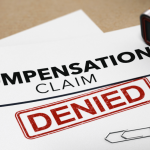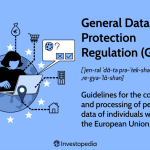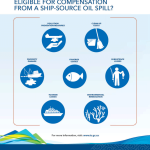Imagine a world where the air you breathe is a crisp, clean canvas, not a murky, congested mess. Think sunshine illuminating vibrant parks, not factories spewing out smog that obscures the sun. Sounds pretty delightful, doesn’t it? Well, this utopian vision can become reality, and the key lies in a place that might surprise you: the courtroom!
That’s right, folks, suing polluters isn’t some gloomy, downer affair. It’s a thrilling David vs. Goliath battle where everyday citizens, armed with facts, passion, and a healthy dose of moxie, can take on the industrial giants sullying our air.
Let’s face it, polluters can be real stinkers (pun very much intended). They churn out emissions that turn our skies into a scene from a dystopian novel, causing a whole host of problems – respiratory illnesses, environmental damage, the list goes on. But here’s the good news: these corporate giants aren’t invincible. When they pollute excessively, the law is on our side!
Think of a lawsuit as a big, shiny megaphone. It amplifies the voices of concerned citizens, raising public awareness and putting polluters on notice. Suddenly, their dirty deeds aren’t such a secret anymore. News travels fast, and under the harsh glare of public scrutiny, polluters start to sweat.

Here’s the best part: lawsuits can lead to real change! When polluters are held accountable, they’re forced to clean up their act, literally. They might have to invest in cleaner technologies, tighten emission controls, or even pay hefty fines. This translates into cleaner air for everyone!
Now, you might be thinking, “Suing a big corporation? That sounds intimidating!” But fear not, intrepid citizen! There’s a whole army of environmental lawyers out there, superheroes in suits who dedicate their days to fighting for clean air. These legal eagles can guide you through the process, help you gather evidence, and stand shoulder to shoulder with you in court.
And guess what? You don’t have to be a millionaire to fight for clean air. Many environmental groups offer legal support and resources to help communities take polluters to task. It’s a team effort, and when passionate individuals join forces, amazing things can happen.
So, the next time you look out the window and see a hazy sky, don’t despair! Remember, you have the power to make a difference. By supporting environmental organizations, raising awareness in your community, or even getting involved in a lawsuit, you can be a champion for clean air.

Imagine a world where the air you breathe is a vibrant shade of pea soup, and that persistent cough just won’t quit. Not exactly a recipe for a good day, right? Well, for many communities, this is a harsh reality. But here’s the good news: just like a pesky villain getting foiled by a team of plucky heroes, everyday citizens have a secret weapon in the fight against dirty air – citizen suits!
Citizen suits, also known as environmental citizen suits, are legal tools that empower regular folks like you and me to hold polluters accountable when they violate the Clean Air Act. Think of it as a David vs. Goliath situation, except David gets to pack a legal heat shield!
So, how exactly do these citizen suits work? Buckle up, because it’s about to get empowering! Let’s say a factory down the street is spewing out noxious fumes, turning your once-pristine sky into a dystopian haze. You, along with your concerned neighbors, can band together and bring a lawsuit against the factory for exceeding pollution limits set by the Environmental Protection Agency (EPA).
Picture this: a group of determined citizens, armed with facts, figures, and a healthy dose of civic spirit, take on the big, bad polluter. It might sound daunting, but citizen suits level the playing field. Here’s why:

The Law is on Your Side: The Clean Air Act gives citizens the legal right to sue polluters who violate its regulations. No fancy law degree needed!
The impact of citizen suits can be nothing short of transformative. Imagine a scenario where a local power plant is exceeding emission limits, contributing to a rise in respiratory illnesses in your community. Thanks to a citizen suit, the court orders the power plant to clean up its act. This not only leads to cleaner air, but also translates into a healthier community, happier residents, and maybe even a few less visits to the doctor’s office (those pesky coughs finally disappearing!).
Citizen suits aren’t just about winning court cases; they’re also about sending a powerful message. By taking polluters to court, communities are saying loud and clear that dirty air won’t be tolerated. It’s a resounding vote for clean skies and a healthier future.
Imagine a world where taking a deep breath feels like a victory. Where crisp air isn’t a luxury, but a basic right. That’s the dream driving a new wave of environmental lawsuits – taking on the very corporations turning our skies a murky shade of “industrial beige.”

No, this isn’t a superhero origin story (although some lawyers might argue they possess Herculean patience). This is the fight for clean air, one courtroom at a time. And guess what? The weapon of choice? The same one that built those smokestacks in the first place – the law.
Here’s the thing: factories and power plants are the backbone of modern life. They keep our lights on and our gadgets charged. But sometimes, that progress comes at a cost. When those industries pump pollutants into the air, they’re not just creating smog, they’re creating a public health crisis.
That’s where lawsuits come in, like a legal knight in shining armor. These lawsuits aren’t about shutting down factories entirely. They’re about holding corporations accountable, forcing them to clean up their act, literally.
Think of it this way: if a factory is spewing out lung-damaging toxins because they haven’t bothered to upgrade their filtration systems, a lawsuit can be the nudge they need to invest in cleaner technology. It’s a financial incentive, a reminder that polluting isn’t just bad for people, it’s bad for business (and bad PR).

Now, battling big corporations in court isn’t exactly a walk in the park. These companies have lawyers with enough experience to make your head spin. But here’s the beauty of the legal system: the law is on the side of clean air.
There are environmental regulations in place for a reason, and these lawsuits hold corporations accountable for violating them. It’s like getting a speeding ticket for the environment, except the penalty could force the company to install brand new, sparkling clean pollution-eating machines!
But lawsuits aren’t just about punishment, they’re about progress. Every lawsuit that’s successful sets a precedent. It shows other companies that polluting isn’t worth the risk, and it paves the way for stricter regulations in the future.
Think about it: cleaner air means a healthier population. That means fewer people getting sick, which means less strain on hospitals and healthcare systems. It means a more productive workforce, and a society that can focus on thriving, not just surviving.

Imagine this: a crisp morning, birdsong trilling a happy tune, and sunlight dappling through leaves. You take a deep breath, ready to greet the day, and… wheeze. A hacking cough erupts, a testament to the thick, grey soup clinging stubbornly to the air. This isn’t a dystopian novel, it’s a reality for many living under the suffocating blanket of air pollution. But fear not, fellow citizens with a yearning for lungfuls of fresh air, because there’s a ray of sunshine (metaphorical, for now) – lawsuits!
That’s right, lawsuits! Not the kind involving spilled coffee or a rogue frisbee, but legal action aimed at polluters, those mischievous entities turning our skies into a murky mess. Now, you might think suing a giant corporation sounds about as likely as winning a staring contest with a smog cloud. But hold on to your (hopefully clean) air filters, because this legal battleground can be surprisingly chipper!
Let’s picture it: a determined lawyer, eyes twinkling with justice, stands toe-to-toe with a representative of Smog Inc., a company with a smokestack so tall it could tickle the clouds (and probably does, contributing to the whole problem). The lawyer, armed with facts and figures about the company’s emissions, is like a superhero wielding a legal kryptonite against the villainous pollution.
Here’s the beauty of it all: lawsuits against polluters aren’t just about punishment, they’re about progress! When a company gets slapped with a hefty fine for their dirty habits, it’s like getting a giant, smelly bill. Suddenly, clean technology starts looking a whole lot more appealing. Imagine factories sporting sparkling new filters, chimneys puffing out harmless wisps instead of acrid smoke. It’s a win for everyone, except maybe the pigeons who used to nestle comfortably on the soot-caked ledges (they’ll find new digs, we promise).
And the best part? These lawsuits can be contagious – not in a bad way, of course! When one company gets held accountable, it sends a ripple effect through the industry. Other polluters start looking over their shoulders, nervously checking their emissions reports. Suddenly, clean air becomes a bragging right, a badge of honor for responsible businesses.
Of course, lawsuits aren’t pixie dust. They take time, resources, and a whole lot of legal wrangling. But here’s the thing: when the air is thick enough to write your name in, the stakes are high. People’s health, the environment, the very future of clear skies – these are all on the line. And sometimes, a good, old-fashioned lawsuit is the push a company needs to step up and become a responsible neighbor in the big, beautiful (or at least, it could be beautiful) world.
In the grand symphony of environmental lawsuits, lawsuits that make polluters pay the piper for their dirty habits, number 5 might not seem like the star soloist. It doesn’t have the pizazz of a giant oil spill or the dramatic flair of a factory fire. But hold on to your hazmat suits, folks, because number 5, the public nuisance claim, is a sneaky little number, a high-five to clean air, and a thorn in the side of polluters everywhere.
Imagine this: you crack open your window for a breath of fresh air, only to be met by a lung-searing cocktail of noxious fumes. Your eyes water, your throat tightens, and you start questioning your life choices about living next to a, well, whatever monstrosity is spewing out that particular brand of misery. This, my friends, is a public nuisance, and number 5 swoops in like a legal superhero to say, “Not today, smokestack!”
Public nuisance lawsuits are like the neighborhood watchdogs of environmental law. They exist to protect the public’s right to a healthy and comfortable environment. So, if a factory’s emissions are turning your neighborhood into a scene straight out of a dystopian novel, number 5 empowers you to fight back!
Here’s the beauty of number 5: it doesn’t require you to prove specific harm to your health. It’s enough to say, “Hey, this stinks (literally) and it’s making my life miserable!” Courts love a good quality-of-life argument, especially when it comes to something as fundamental as breathing clean air.
Now, polluters might try to play the “economics” card, whining about the cost of cleaning up their act. But number 5 retorts with a hearty, “” (that’s the sound of a world’s tiniest violin playing for their plight). The courts can order polluters to take corrective action, even if it means putting a dent in their profits. After all, clean air shouldn’t be a luxury good, should it?
Public nuisance lawsuits are also a great way to shine a spotlight on polluters’ bad behavior. Think of it as a giant air freshener for your neighborhood’s reputation. Suddenly, that factory with the questionable emissions record isn’t such a hot investment anymore. Investors get skittish, public pressure mounts, and before you know it, polluters might just find themselves scrambling to clean up their act, all thanks to the power of number 5!
In the grand courtroom drama of “When Dirty Air Means Dirty Business: Suing Over Pollution,” number six might not snag the starring role, but it plays a surprisingly vital supporting character. Forget the dramatic opening statements or the heart-wrenching testimonies – number six works its magic behind the scenes, quietly building a case against those who choke our skies with smog.
So, what makes number six such a superhero in the fight for clean air? Well, imagine it as a secret decoder ring, a Rosetta Stone for translating the cryptic language of pollution permits. Every factory, power plant, or industrial polluter has a permit – a document outlining the types and amounts of pollutants they’re allowed to release. These permits are like report cards for polluters, and guess what? Number six often represents the acceptable limit for a specific pollutant.
Here’s where the plot thickens. When a company consistently exceeds number six on their permit’s “pollution report card,” it’s a red flag. It tells a story – a story of disregard for environmental regulations, a story of prioritizing profit over public health. Armed with this evidence, environmental lawyers can build a compelling case, demonstrating the polluter’s blatant disregard for the very rules they agreed to play by.
But number six isn’t just a whistleblower; it’s also a shield. When polluters try to weasel out of responsibility, claiming their emissions are within “acceptable” ranges, number six steps in, acting as a clear line in the sand. It reminds everyone, from judges to jurors, that there’s no gray area here. Exceeding number six is a black and white violation, a clear breach of trust.
Now, the legal battle might not be a superhero brawl with capes and lasers, but it’s a fight nonetheless. And in this fight, number six is a powerful weapon. It empowers citizens to hold polluters accountable, to demand the clean air they deserve. It’s a reminder that even the smallest number can pack a powerful punch, a testament to the fact that even the quietest voice can speak volumes in the fight for a healthier planet.



